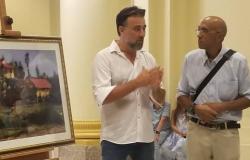On this occasion, in this month of June, so important in the life of the hero, I invite the reader to review, as stated in the title, the studies completed by him in the Kingdom of Spain. Here we go.
Having finished his secondary education at the Real Colegio San Carlos, in his native Buenos Aires, at the age of 16, he was sent by his parents, along with a brother, to begin his higher education in Law in Spain.
He arrived in the Iberian Peninsula in October 1786, deciding to undertake his legal studies at the University of Salamanca, at that time, the most prestigious in the field of legal science in the Castilian world, which he was only able to do, for bureaucratic reasons, in the second semester of 1787, formally beginning the course and staying in one of the Residence Halls of that institution.
Thus, he began his higher studies in Law, obtaining the title of Bachelor of Laws on January 28, 1789 by successfully presenting the thesis assigned to him, and it is noteworthy that during his studies he participated as an active member of the Academy of Law. Forensic Practice and Political Economy of that high house of studies, which he came to preside over.
His training did not stop; Thus, he carried out internships in legal studies and in courts, he deepened his study of languages - English, French and Italian -, he privileged reading classics of the time, not only the subject of his concern, with the aim of advancing his knowledge. and know…
On January 31, 1793, he appeared before the Chancellery of the University of Valladolid, taking and passing the exam that would finally make him a lawyer.
His respected name did not go unnoticed in the academic spheres of the peninsula, where he stood out for his dedication to study, advancing daily and steadily in his comprehensive intellectual training.
He participated in teaching activities and joined work and research teams in his science, where he stood out, which led, at his request in this regard, to SS Pius VI granting him authorization to read all types of literature prohibited by the Church of that time. “…in the broadest way so that he could read all types of condemned books even if they were heretical…”, according to the document.
With that important load of knowledge he returned to his homeland in mid-1794, to take charge of the Perpetual Secretariat of the brand new Consulate of Buenos Aires, an organization in which he poured all his solid training, as he did throughout his entire life, always in favor of patriotic interests.
In this month in which he is remembered, may this frame our respectful memory.
* Member of the Belgranian National Institute. Full member of the Neuquén Historical Studies Board.





